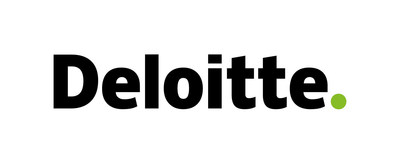Deloitte Survey: Cognitive Adoption in the Enterprise is Resulting in Economic Benefits; Job Creation Expected
Press Releases
Nov 13, 2017
NEW YORK, Nov. 13, 2017 /PRNewswire/ — Early adopters of artificial intelligence and cognitive technologies report strong opportunities for economic gains and job creation according to a new survey released by Deloitte today. The sentiment of respondents is positive about the current and future role of cognitive technologies in their organizations. In fact, 63 percent already have training programs underway for employees to learn how to develop cognitive technologies or work alongside them.

The report titled, “Bullish on the Business Value of Cognitive: 2017 Deloitte State of Cognitive Survey,” shares key insights from 250 “cognitive aware” U.S. executives and provides a view from the front lines in terms of realized successes, current challenges, and outlook on the future impact it will have on business.
“There is a concern that ‘the rise of the machines’ will replace human workers, but we should look at how people and machines can work in collaboration as co-bots,” said Deloitte CEO Cathy Engelbert. “The ability to leverage new technologies to retool our workforce will ultimately lead to new opportunities to build high value skills for our workers.”
New jobs and reskilling efforts offsetting losses
Contrary to public sentiment, the survey respondents did not see job loss as a key outcome of their AI-related efforts with 69 percent of respondents expecting minimal to no job loss within the next three years.
In fact, more than 1 in 4 respondents (29 percent) see the addition of new jobs taking place in the same time frame with the adoption of AI and cognitive technologies. Furthermore, when asked about perceived benefits of AI and cognitive technologies, workforce reduction was ranked the lowest (22 percent).
Cognitive is becoming a business imperative
Nearly all survey respondents (92 percent) believe that cognitive technologies are an important aspect of their internal business process and 87 percent reported it will play a significant role in improving their products and services. Overall, 3 in 4 (76 percent) believe that AI and cognitive technologies will substantially transform their organizations. Moving forward, even more (90 percent), see them playing a larger role in shaping company strategy.
“Organizations today that want to create a cognitive advantage should reimagine when, why and how humans and machines work together to achieve better outcomes,” said Ryan Renner, principal, Deloitte Consulting LLP, and Deloitte’s cognitive advantage leader. “Cognitive technologies are disrupting how organizations conduct tasks, make decisions and complete interactions internally; and with their customers. The true value is created by knowing how to apply the technologies most effectively within the context of your business, marketplace, corporate culture and industry.”
Investments and early returns
The survey found that more than 1 in 3 (37 percent) companies have invested $5 million or more in AI and cognitive technologies. Investments have been primarily geared toward information technology (64 percent), product development/R&D (44 percent), and customer service (40 percent).
Seventy-three percent of early adopters are exploring mature cognitive technologies such as robotic process automation and 70 percent statistical machine learning. Forty-nine percent are employing deep learning neural networks.
Eighty-three percent of respondents report moderate to substantial economic benefits from AI and cognitive technologies. Organizations that claimed the greatest economic benefits feel that cognitive should be used for transformational change versus incremental improvements. However, a slight majority of respondents feel more comfortable starting with “low hanging fruit” projects or waiting a few more years for the technologies to mature.
“Cognitive technologies are still maturing, but our study shows that early adopters are experiencing benefits, especially those that have jumped in with both feet,” said Jeff Loucks, executive director Deloitte Services LP, Deloitte Center for Technology, Media and Telecommunications. “The more experienced companies are, the more likely they are to see gains. That should provide an incentive for others to get started.”
The full survey report and shareable content can be found at http://www.deloitte.com/us/cognitivesurvey.
Learn more about Deloitte’s Cognitive Advantage service here.
Follow us on @DeloitteTMT and @DeloitteBA.
Survey report methodology
The report is based on findings from an online survey of 250 senior executive (C-suite to director level) respondents in the United States from mid- to large-sized organizations (500 to more than 10,000 employees) across the technology, media, telecom (TMT); consumer and industrial products; and financial services industries primarily. All respondents are considered “cognitive aware” meaning they have a broad understanding, with the majority (74 percent) deemed experts, in both the concept of cognitive technologies and their applications within their organizations.
About Deloitte
Deloitte provides industry-leading audit, consulting, tax and advisory services to many of the world’s most admired brands, including more than 85 percent of the Fortune 500 and more than 6,000 private and middle market companies. Our people work across more than 20 industry sectors to make an impact that matters — delivering measurable and lasting results that help reinforce public trust in our capital markets, inspire clients to see challenges as opportunities to transform and thrive, and help lead the way toward a stronger economy and a healthy society. Deloitte is proud to be part of the largest global professional services network serving our clients in the markets that are most important to them.
Contact
Alicia DiGennaro
Public Relations
Deloitte Services LP
+1 212 436 2416
[email protected]
Deloitte refers to one or more of Deloitte Touche Tohmatsu Limited, a UK private company limited by guarantee (“DTTL”), its network of member firms, and their related entities. DTTL and each of its member firms are legally separate and independent entities. DTTL (also referred to as “Deloitte Global”) does not provide services to clients. In the United States, Deloitte refers to one or more of the US member firms of DTTL, their related entities that operate using the “Deloitte” name in the United States and their respective affiliates. Certain services may not be available to attest clients under the rules and regulations of public accounting. Please see www.deloitte.com/about to learn more about our global network of member firms.
View original content with multimedia:http://www.prnewswire.com/news-releases/deloitte-survey-cognitive-adoption-in-the-enterprise-is-resulting-in-economic-benefits-job-creation-expected-300554404.html
SOURCE Deloitte



